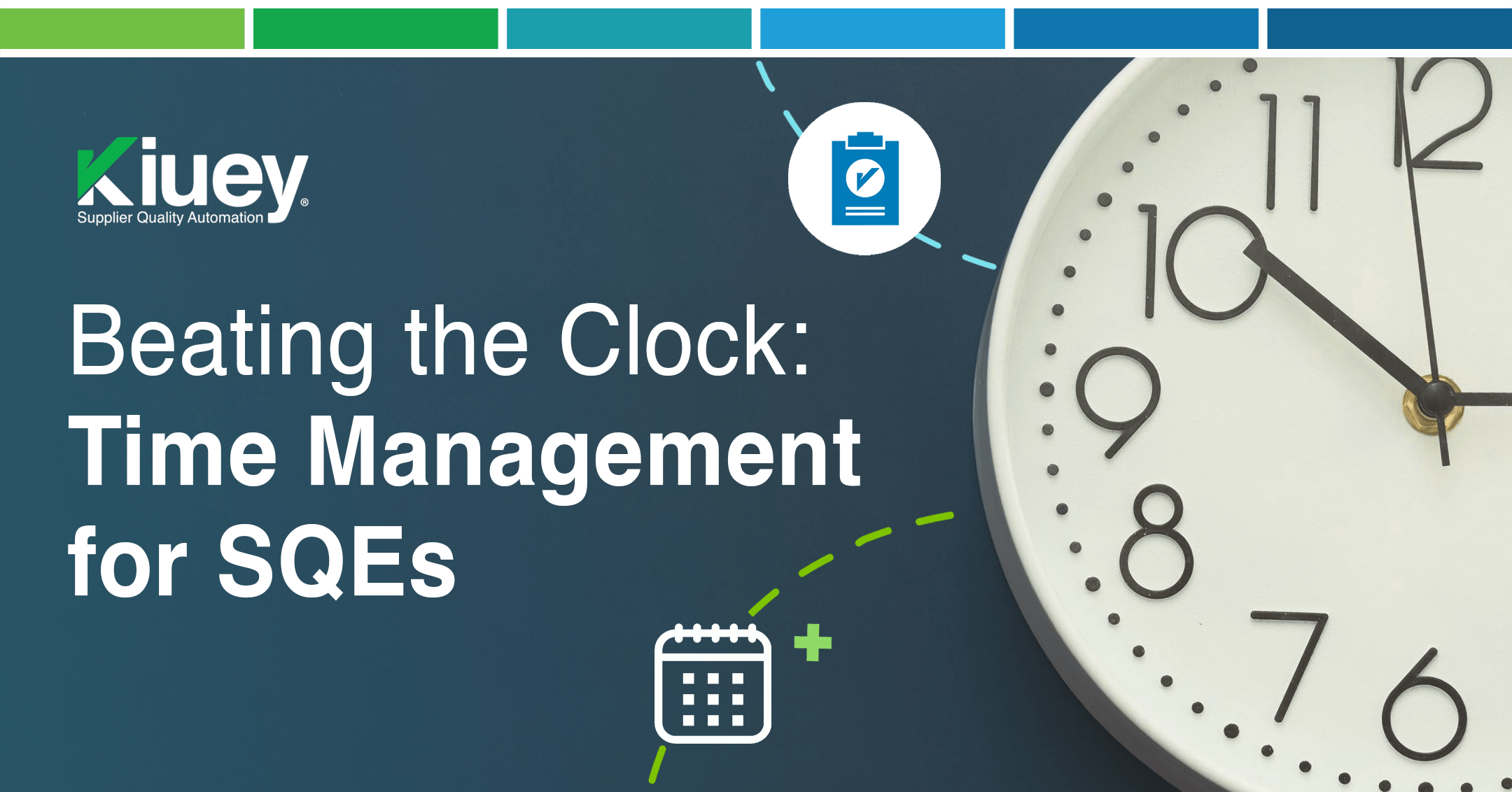
May 31, 2024
Supplier Quality Engineers (SQEs) are the guardians of quality in the supply chain. Their responsibilities encompass crucial tasks like auditing suppliers, reviewing documentation, and troubleshooting quality issues. These tasks are often time-sensitive, demanding SQEs to work efficiently and effectively under pressure and excel at time management.
The Two Faces of Time Management for SQEs
Time-related pressure for SQEs comes from two directions:
- Internal Deadlines: These deadlines are set by your company for tasks like supplier evaluations, report generation, and implementing corrective actions. Missing internal deadlines can disrupt internal processes and delay production.
- External Pressures: These arise from responding to supplier issues that threaten production schedules or cause delays. For example, a sudden quality defect identified during an audit might necessitate immediate corrective action to prevent a production stoppage.
Strategies for SQE Time Management Mastery
Conquering time management as an SQE requires a strategic approach. Here are some tactics to become a time management champion:
- Prioritization and Planning: Understanding your priorities is key. Develop a clear work plan that allocates time effectively for each task. Utilize tools like to-do lists and scheduling apps to keep yourself organized. Categorize tasks by urgency and importance, addressing critical issues first.
- Communication is King: Open communication with both internal stakeholders and suppliers is crucial. Keep everyone informed about progress made, potential challenges encountered, and any adjustments to deadlines. Regular communication fosters trust and allows for proactive problem-solving.
- Streamline Processes: Look for ways to optimize your workflows. Consider using templates for reports and implementing standardized procedures for supplier evaluations. Streamlining processes saves time and ensures consistency in your approach.
- Embrace Technology: Tools and technology are your allies. Explore project management software that allows you to track tasks, set deadlines, and collaborate with colleagues. Utilize data analysis tools to automate repetitive tasks such as data entry and analysis. This frees up valuable time for more strategic work like supplier development and process improvement initiatives.
Maintaining Balance on Time Management: The Power of “No”
While meeting deadlines is the key, preventing burnout is equally important. Schedule regular breaks throughout the day to maintain focus and avoid mental fatigue. Don’t be afraid to delegate tasks when possible, especially repetitive or administrative work. Finally, learn to say “no” to unreasonable requests that overload your schedule. Prioritize your well-being – a rested and balanced SQE is a more effective one.
By implementing these strategies, you can become a time management master as an SQE. This will allow you to excel in your role, deliver high-quality results for your company, and maintain a healthy work-life balance.
Remember, time management is a skill that improves with practice. So, keep refining your approach, and you’ll be well on your way to becoming a time management champion in the world of supplier quality.
Let's talk to see how PPAP Manager can help your company to save time and money.


